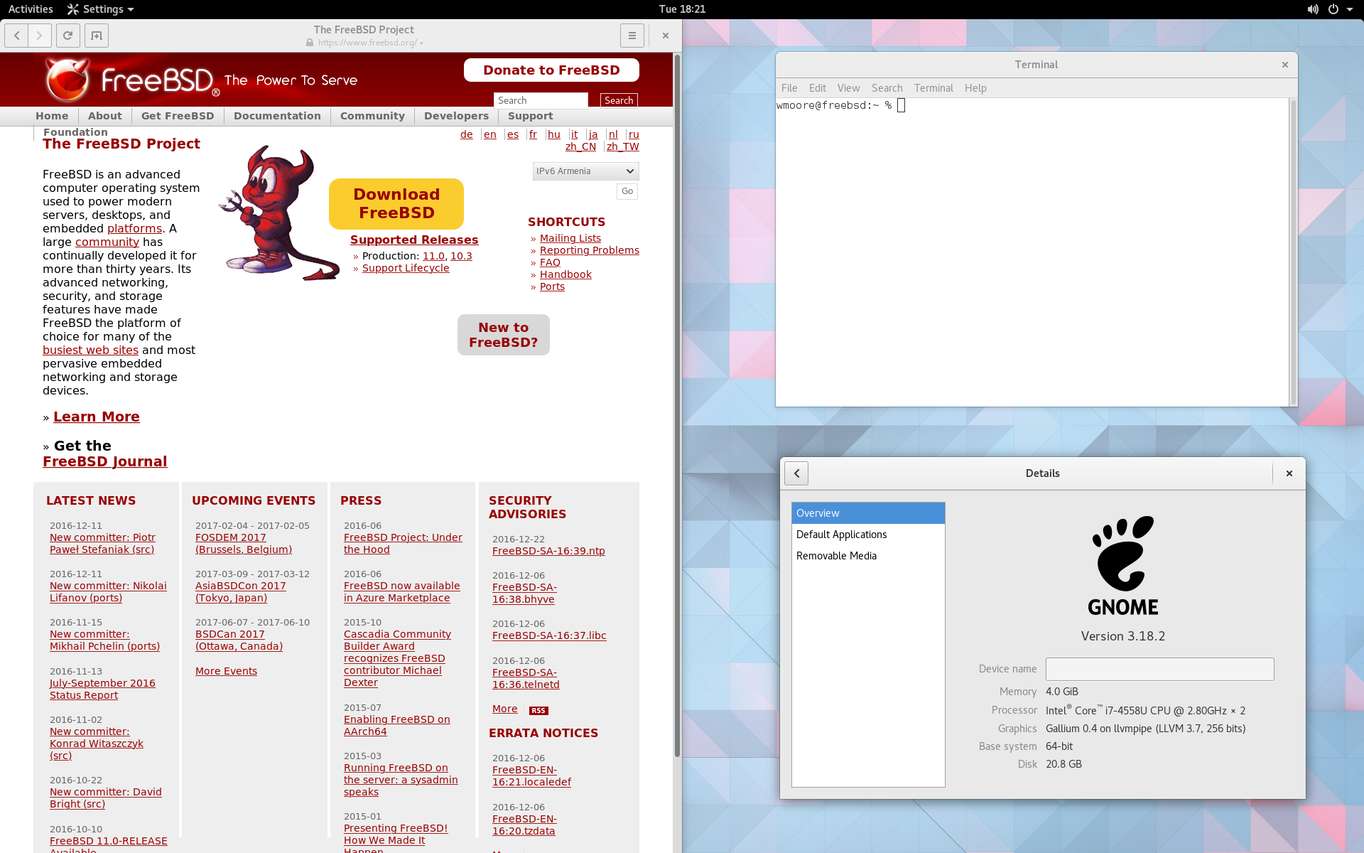Originally posted by rpcameron
View Post
Gnome 3 on FreeBSD seems to be mostly stuck on 3.18, which is couple of years old. Some components are 3.24 but none appear newer.


Comment